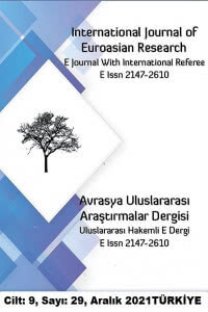RÂHATU'N-NÜFÛS ÜZERİNE BİR DİL İNCELEMESİ (İNCELEME-METİN-DİZİN-SÖZLÜK-TERİMLER)
Türk dili çalışmaları için değerli ve zengin bir malzemeyi bünyesinde barındıran Râhatu'n-Nüfûs, XVI. yüzyılın ikinci yarısında devrin tarih, edebiyat, siyaset ve diğer sahalarında eserler vermiş kültürlü şahsiyetlerinden olan Gelibolulu Mustafa Âli tarafından cinsel sağlık konusunda yazılmış bir bâhnâme örneğidir. İki ayrı cüzden oluşan eserin birinci cüzü kadınlar, ikinci cüzü erkekler için yazılmış olup her iki cüz de dört bâbdan oluşmaktadır. Arap ve Fars dillerinin etkisinin görüldüğü bu eserde, erkek ve kadın tipolojileri, cinselliğin yararları, zararları, cinselliği arttırıcı terkipler, cinsel hastalık isimleri, tedavi yöntemleri, gebe kalma, gebe kalmayı engelleyici yöntemler gibi konular yer almaktadır. Organ adları, ilaç, yiyecek, içecek adları, bitki ve hayvan adları bakımından da oldukça zengin bir eser olan Râhatu'nNüfûs, Türk, Arap, Fars, Mezopotamya, Hint ve Anadolu kültürlerinden derlenmiş oldukça zengin ve önemli bilgileri de bünyesinde barındırmaktadır. Toplamda beş nüshası olan eserin üç nüshası Mısır'da, bir nüshası Berlin'de (Almanya Millî Kütüphanesi) ve bir nüshası Kayseri'de (Râşid Efendi Kütüphanesi) olmakla beraber eser, bu nüshalarda Râhatu'n-Nüfûs, Rûhu'n-Nüfûs gibi farklı isimlerle isimlendirilmiştir. Eserin bu beş nüshada konu bakımından farklı değerlendirildiği de göze çarpmaktadır. Eser söz konusu nüshalardan Mısır nüshasında Tıp ilimleri, Berlin nüshasında Dintasavvuf, Kayseri nüshasında Tıp kitabı olarak değerlendirilmiştir
CELAL BAYAR’S VISITS TO BELGRADE AND SOFIA IN THE CONTEXT OF TURKEY’S FOREIGN POLICY BASED ON SECURITY CONCERNS BEFORE THE SECOND WORLD WAR (MAY 9-13, 1938)
The 1930s stand out as the years when Turkey largely solved the problems left over from Lausanne and followed an active foreign policy. In this process, when Germany and Italy, following an expansionist and aggressive policy, started to pose serious dagers, Turkey signed the Balkan Entente with Greece, Yugoslavia and Romania and created a security strip on its western border. However, it was not easy to keep the Balkan Entente afloat and make it sustainable in these years when excessive armament, militarization and highly active foreign policy developements were experienced. Accordingly, in the years following the signing of the entente, continuous negotiations and mutual visits continued betwen Turkey and the Balkan states. By 1937, the fact that Yugoslavia started to move away from the Balkan Entente and Bulgaria got closer to the revisionist states intensified mutual visits. Prime Minister Celal Bayar, under the influence of these developements, made his first trip abroad as a Balkan tour that included Athens, Belgrade and Sofia. In this study, which focuses on the visits to Belgrade and Sofia, which constitute the second leg of the tour, the developements and details in the background of the visits are examined. Thus, in an environment where there is a possibility of the Second World War to start at any moment, Turkey’s efforts to protect and sustain the Balkan Entente as well as these visits, which aim to remove Bulgaria from being a danger, are discussed. The signing of the Thessaloniki Treaty between the Balkan Entente states and Bulgaria following Celal Bayar’s tour led to the conclusion that this trip achieved its purpose.
